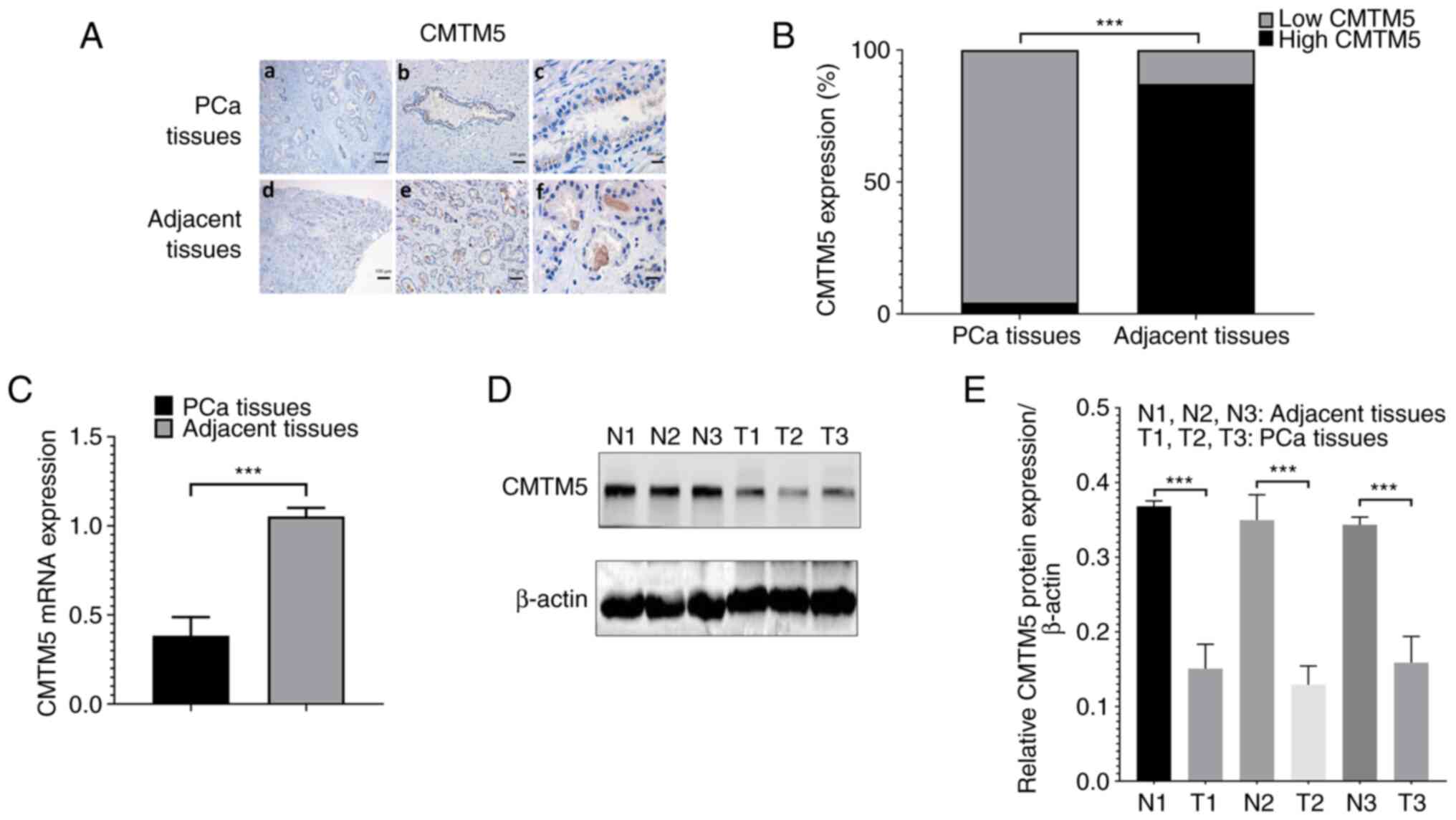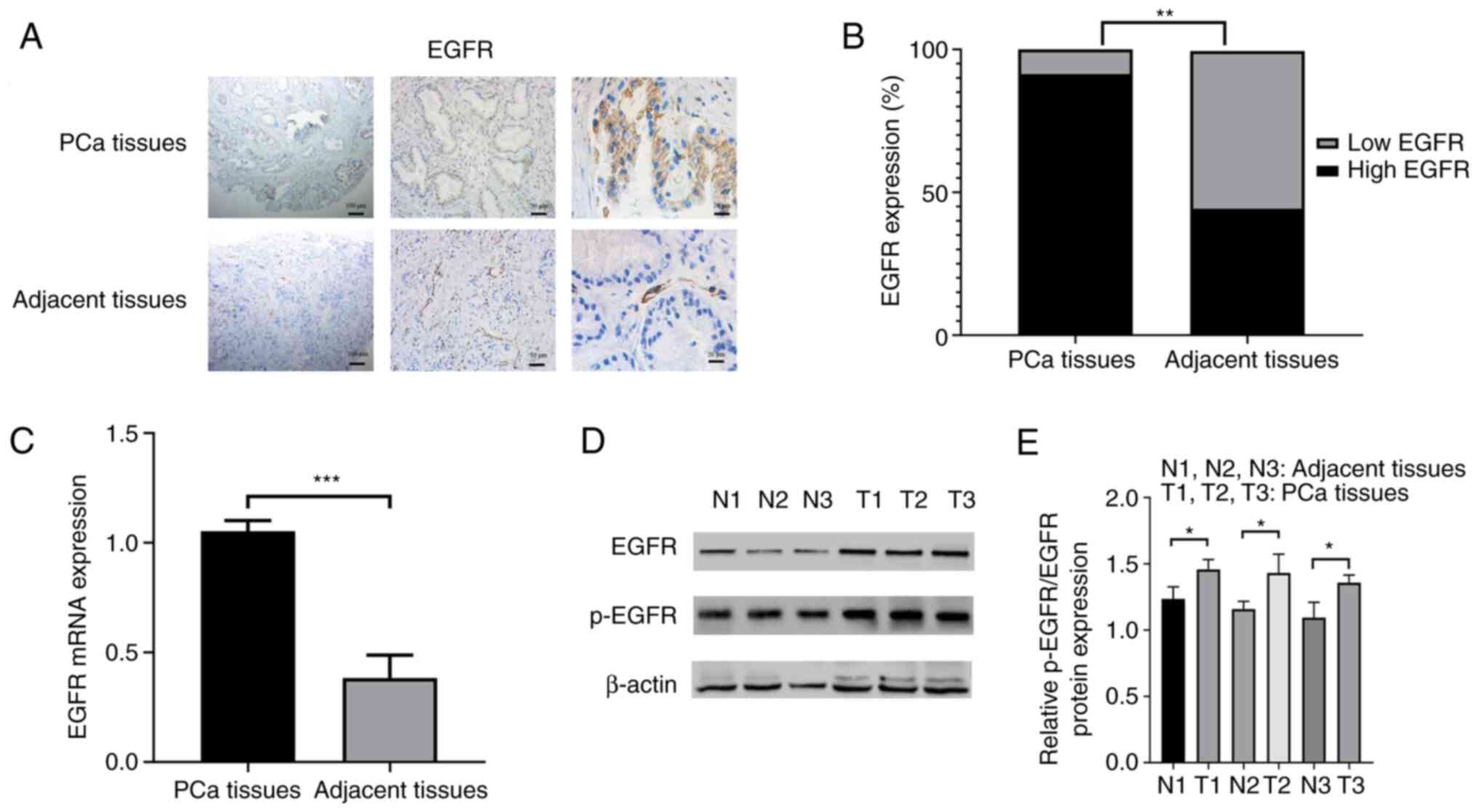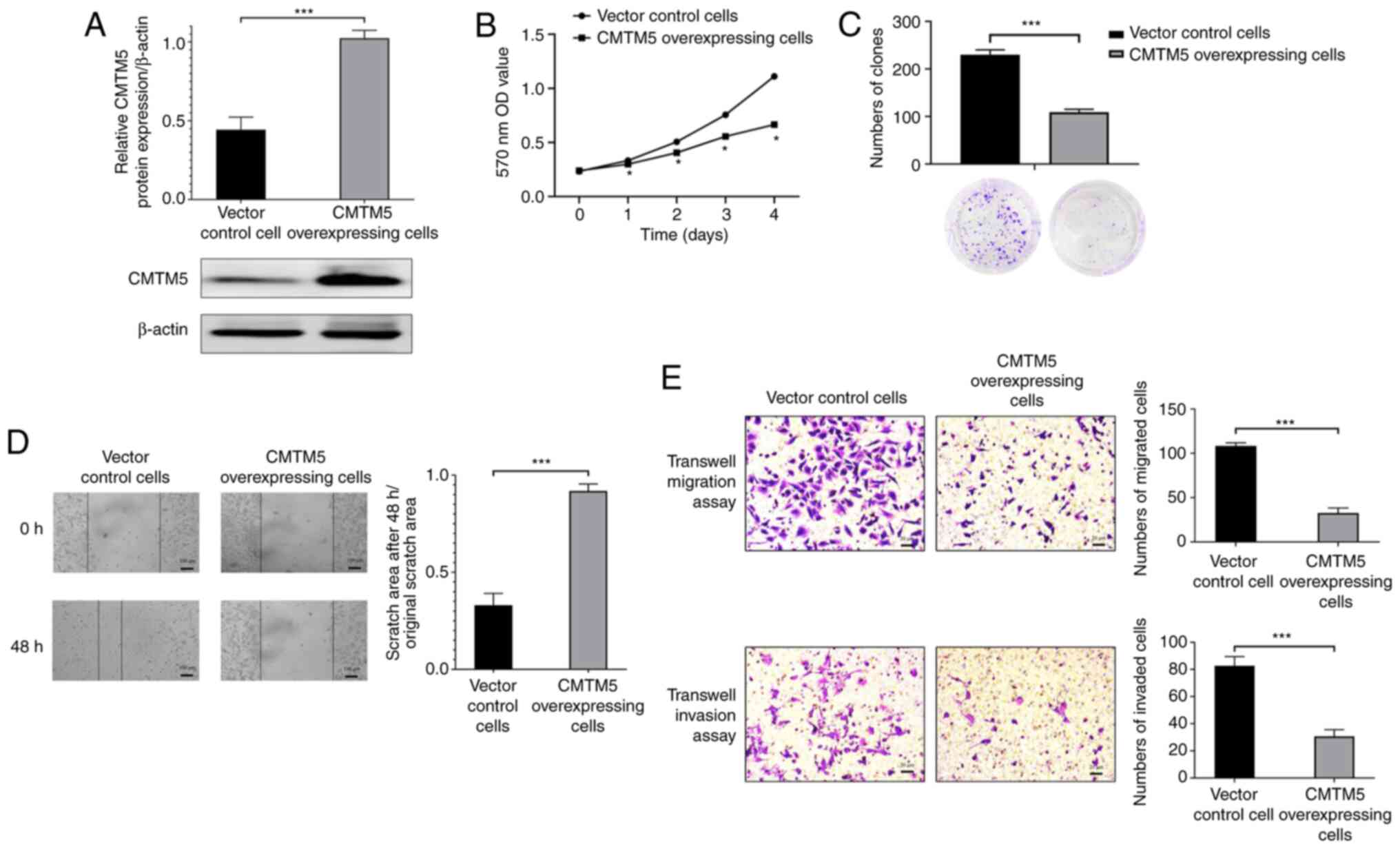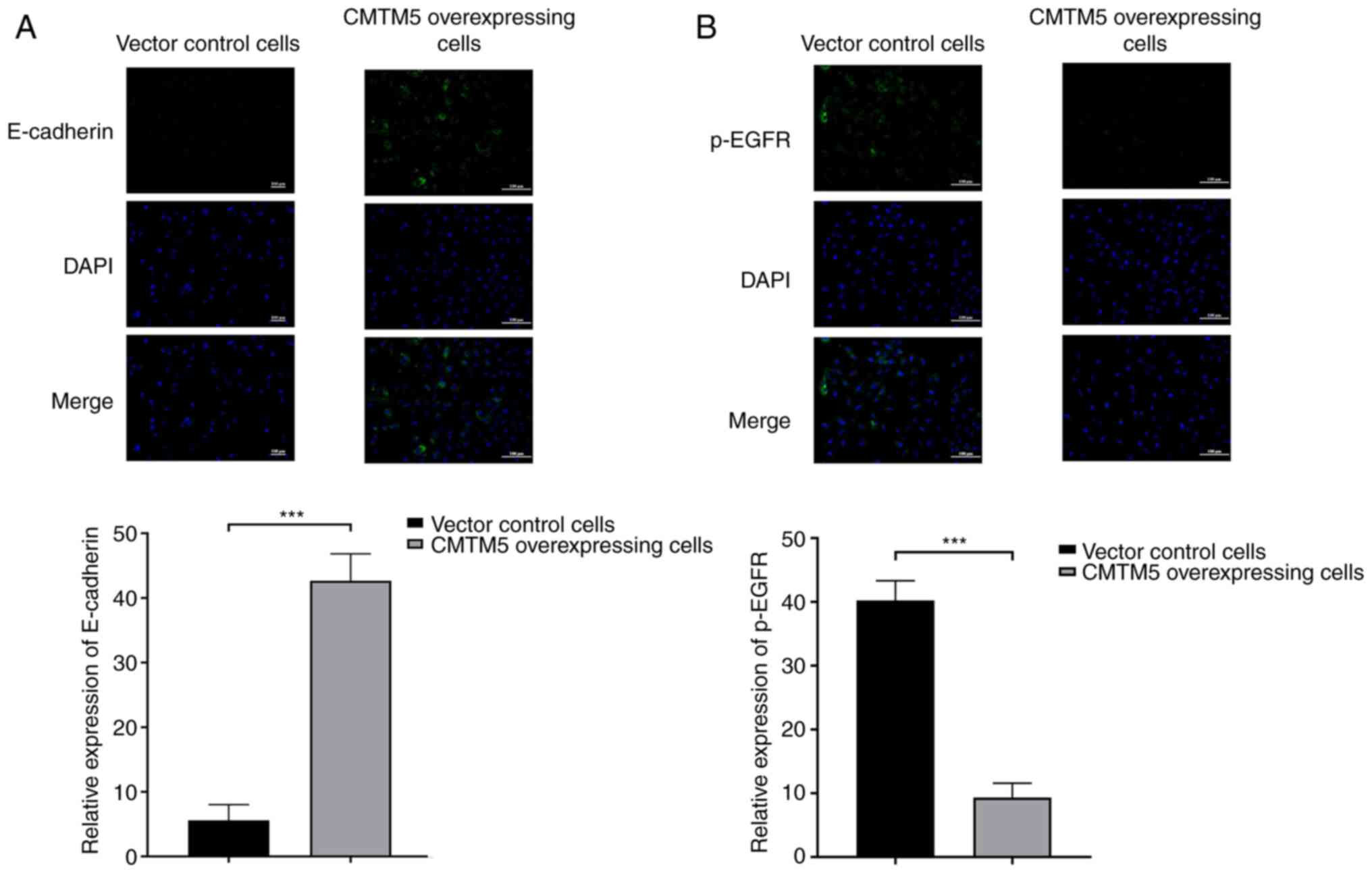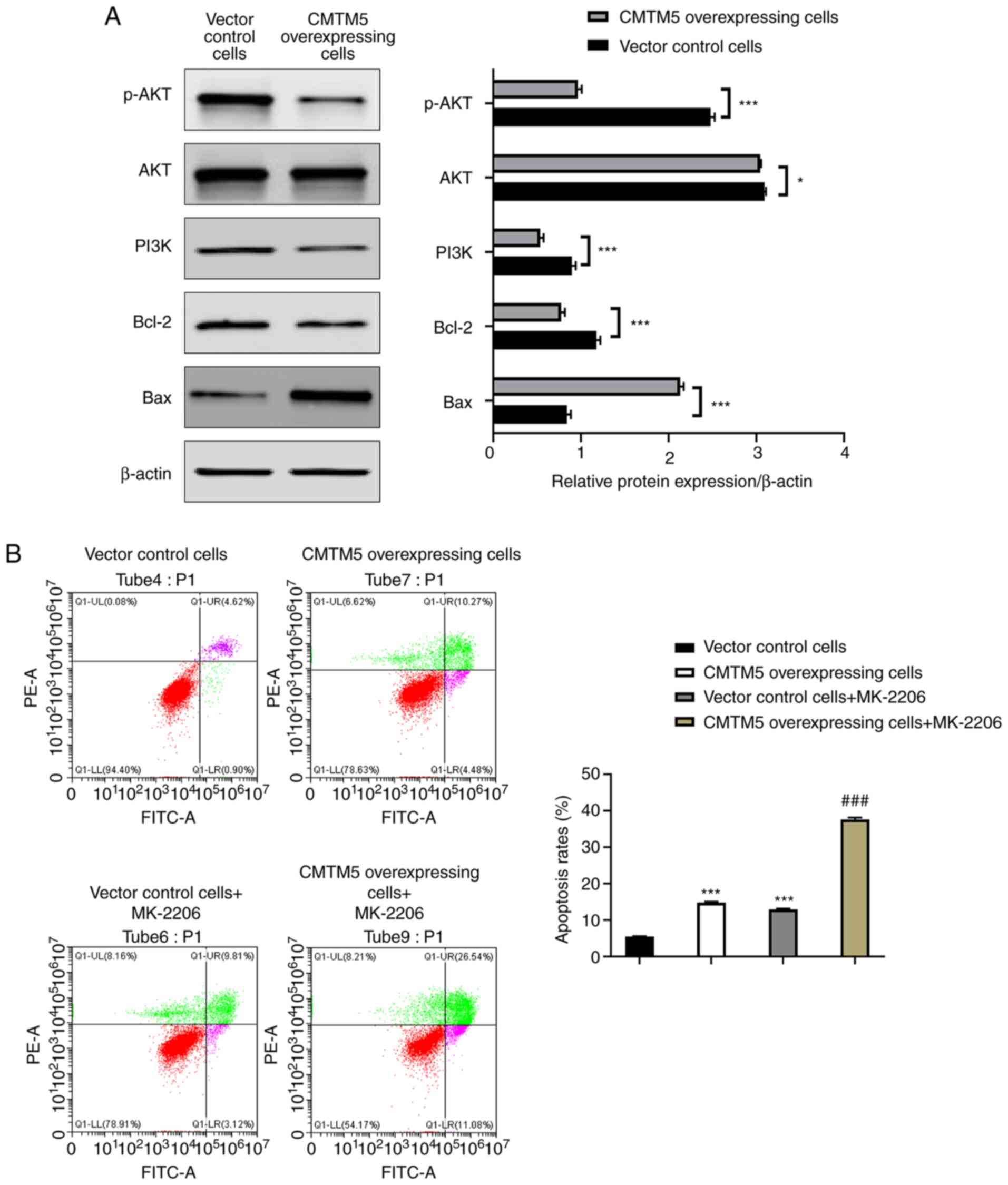|
1
|
Siegel RL, Miller K and Jemal A: Cancer
statistics, 2020. CA Cancer J Clin. 70:7–30. 2020. View Article : Google Scholar : PubMed/NCBI
|
|
2
|
Zhuo L, Cheng Y, Pan Y, Zong J, Sun W, Xu
L, Soriano-Gabarró M, Song Y, Lu J and Zhan S: Prostate cancer with
bone metastasis in Beijing: An observational study of prevalence,
hospital visits and treatment costs using data from an
administrative claims database. BMJ Open. 9:e0282142019. View Article : Google Scholar : PubMed/NCBI
|
|
3
|
Jia Y, Zhu LY, Xian YX, Sun XQ, Gao JG,
Zhang XH, Hou SC, Zhang CC and Liu ZX: Detection rate of prostate
cancer following biopsy among the northern Han Chinese population:
A single-center retrospective study of 1022 cases. World J Surg
Oncol. 15:1652017. View Article : Google Scholar : PubMed/NCBI
|
|
4
|
Wu G, Huang S, Nastiuk KL, Li J, Gu J, Wu
M, Zhang Q, Lin H and Wu D: Variant allele of HSD3B1 increases
progression to castration-resistant prostate cancer. Prostate.
75:777–782. 2015. View Article : Google Scholar : PubMed/NCBI
|
|
5
|
Mimeault M and Batra SK: Recent advances
on multiple tumorigenic cascades involved in prostatic cancer
progression and targeting therapies. Carcinogenesis. 27:1–22. 2006.
View Article : Google Scholar : PubMed/NCBI
|
|
6
|
Peraldo-Neia C, Migliardi G, Mello-Grand
M, Montemurro F, Segir R, Pignochino Y, Cavalloni G, Torchio B,
Mosso L, Chiorino G and Aglietta M: Epidermal Growth Factor
Receptor (EGFR) mutation analysis, gene expression profiling and
EGFR protein expression in primary prostate cancer. BMC Cancer.
11:312011. View Article : Google Scholar : PubMed/NCBI
|
|
7
|
Mitsunari K, Miyata Y, Asai A, Matsuo T,
Shida Y, Hakariya T and Sakai H: Human antigen R is positively
associated with malignant aggressiveness via upregulation of cell
proliferation, migration, and vascular endothelial growth factors
and cyclooxygenase-2 in prostate cancer. Transl Res. 175:116–128.
2016. View Article : Google Scholar : PubMed/NCBI
|
|
8
|
Pan M, Schinke H, Luxenburger E, Kranz G,
Shakhtour J, Libl D, Huang Y, Gaber A, Pavšič M, Lenarčič B, et al:
EpCAM ectodomain EpEX is a ligand of EGFR that counteracts
EGF-mediated epithelial-mesenchymal transition through modulation
of phospho-ERK1/2 in head and neck cancers. PLoS Biol.
16:e20066242018. View Article : Google Scholar : PubMed/NCBI
|
|
9
|
Yuan W, Liu B, Wang X, Li T, Xue H, Mo X,
Yang S, Ding S and Han W: CMTM3 decreases EGFR expression and
EGF-mediated tumorigenicity by promoting Rab5 activity in gastric
cancer. Cancer Lett. 386:77–86. 2017. View Article : Google Scholar : PubMed/NCBI
|
|
10
|
Tsai PC, Fu YS, Chang LS and Lin SR:
Taiwan cobra cardiotoxin III suppresses EGF/EGFR-mediated
epithelial-to-mesenchymal transition and invasion of human breast
cancer MDA-MB-231 cells. Toxicon. 111:108–120. 2016. View Article : Google Scholar : PubMed/NCBI
|
|
11
|
Clapéron A, Mergey M, Nguyen Ho-Bouldoires
TH, Vignjevic D, Wendum D, Chrétien Y, Merabtene F, Frazao A,
Paradis V, Housset C, et al: EGF/EGFR axis contributes to the
progression of cholangiocarcinoma through the induction of an
epithelial-mesenchymal transition. J Hepatol. 61:325–332. 2014.
View Article : Google Scholar : PubMed/NCBI
|
|
12
|
Wang Y, Hu J, Wang Y, Ye W, Zhang X, Ju H,
Xu D, Liu L, Ye D, Zhang L, et al: EGFR activation induced
Snail-dependent EMT and myc-dependent PD-L1 in human salivary
adenoid cystic carcinoma cells. Cell Cycle. 17:1457–1470. 2018.
View Article : Google Scholar : PubMed/NCBI
|
|
13
|
Jathal MK, Steele TM, Siddiqui S, Mooso
BA, D'Abronzo LS, Drake CM, Whang YE and Ghosh PM: Dacomitinib, but
not lapatinib, suppressed progression in castration-resistant
prostate cancer models by preventing HER2 increase. Br J Cancer.
121:237–248. 2019. View Article : Google Scholar : PubMed/NCBI
|
|
14
|
Bender R and Gabhann FM: Dysregulation of
the vascular endothelial growth factor and semaphorin
ligand-receptor families in prostate cancer metastasis. BMC Syst
Biol. 9:552015. View Article : Google Scholar : PubMed/NCBI
|
|
15
|
Han W, Ding P, Xu M, Wang L, Rui M, Shi S,
Liu Y, Zheng Y, Chen Y, Yang T and Ma D: Identification of eight
genes encoding chemokine-like factor superfamily members 1-8
(CKLFSF1-8) by in silico cloning and experimental validation.
Genomics. 81:609–617. 2003. View Article : Google Scholar : PubMed/NCBI
|
|
16
|
Li H, Guo X, Shao L, Plate M, Mo X, Wang Y
and Han W: CMTM5-v1, a four-transmembrane protein, presents a
secreted form released via a vesicle-mediated secretory pathway. J
Biochem Mol Biol. 43:182–187. 2010.PubMed/NCBI
|
|
17
|
Liu B, Su Y, Li T, Yuan W, Mo X, Li H, He
Q, Ma D and Han W: CMTM7 knockdown increases tumorigenicity of
human non-small cell lung cancer cells and EGFR-AKT signaling by
reducing Rab5 activation. Oncotarget. 6:41092–41107. 2015.
View Article : Google Scholar : PubMed/NCBI
|
|
18
|
Li H, Li J, Su Y, Fan Y, Guo X, Li L, Su
X, Rong R, Ying J, Mo X, et al: A novel 3p22.3 gene CMTM7 represses
oncogenic EGFR signaling and inhibits cancer cell growth. Oncogene.
33:3109–3118. 2014. View Article : Google Scholar : PubMed/NCBI
|
|
19
|
Both J, Krijgsman O, Bras J, Schaap GR,
Baas F, Ylstra B and Hulsebos TJ: Focal chromosomal copy number
aberrations identify CMTM8 and GPR177 as new candidate driver genes
in osteosarcoma. PLoS One. 9:e1158352014. View Article : Google Scholar : PubMed/NCBI
|
|
20
|
Chang SS and Amin MB: Utilizing the
tumor-node-metastasis staging for prostate cancer: The sixth
edition, 2002. CA Cancer J Clin. 58:54–59. 2008. View Article : Google Scholar : PubMed/NCBI
|
|
21
|
Livak KJ and Schmittgen TD: Analysis of
relative gene expression data using real-time quantitative PCR and
the 2(−Delta Delta C(T)) method. Methods. 25:402–408. 2001.
View Article : Google Scholar : PubMed/NCBI
|
|
22
|
Shao L, Cui Y, Li H, Liu Y, Zhao H, Wang
Y, Zhang Y, Ng KM, Han W, Ma D and Tao Q: CMTM5 exhibits tumor
suppressor activities and is frequently silenced by methylation in
carcinoma cell lines. Clin Cancer Res. 13:5756–5762. 2007.
View Article : Google Scholar : PubMed/NCBI
|
|
23
|
Guo X, Li T, Wang Y, Shao L, Zhang Y, Ma D
and Han W: CMTM5 induces apoptosis of pancreatic cancer cells and
has synergistic effects with TNF-alpha. Biochem Biophys Res Commun.
387:139–142. 2009. View Article : Google Scholar : PubMed/NCBI
|
|
24
|
Shao L, Guo X, Plate M, Li T, Wang Y, Ma D
and Han W: CMTM5-v1 induces apoptosis in cervical carcinoma cells.
Biochem Biophys Res Commun. 379:866–871. 2009. View Article : Google Scholar : PubMed/NCBI
|
|
25
|
Huang ZM, Li PL, Yang P, Hou XD, Yang YL,
Xu X and Xu F: Overexpression of CMTM7 inhibits cell growth and
migration in liver cancer. Kaohsiung J Med Sci. 35:332–340.
2019.PubMed/NCBI
|
|
26
|
Montanari M, Rossetti S, Cavaliere C,
D'Aniello C, Malzone MG, Vanacore D, Di Franco R, La Mantia E,
Iovane G, Piscitelli R, et al: Epithelial-mesenchymal transition in
prostate cancer: An overview. Oncotarget. 8:35376–3589. 2017.
View Article : Google Scholar : PubMed/NCBI
|
|
27
|
Wang L, Song G, Tan W, Qi M, Zhang L, Chan
J, Yu J, Han J and Han B: MiR-573 inhibits prostate cancer
metastasis by regulating epithelial-mesenchymal transition.
Oncotarget. 6:35978–35990. 2015. View Article : Google Scholar : PubMed/NCBI
|
|
28
|
Lai Y, Kong Z, Zeng T, Xu S, Duan X, Li S,
Cai C, Zhao Z and Wu W: PARP1-siRNA suppresses human prostate
cancer cell growth and progression. Oncol Rep. 39:1901–1909.
2018.PubMed/NCBI
|
|
29
|
Nieto MA, Huang RY, Jackson RA and Thiery
JP: EMT: 2016. Cell. 166:21–45. 2016. View Article : Google Scholar : PubMed/NCBI
|
|
30
|
Hu F, Yuan W, Wang X, Sheng Z, Yuan Y, Qin
C, He C and Xu T: CMTM3 is reduced in prostate cancer and inhibits
migration, invasion and growth of LNCaP cells. Clin Transl Oncol.
17:632–639. 2015. View Article : Google Scholar : PubMed/NCBI
|
|
31
|
Guan L, Ji D, Liang N, Li S and Sun B:
Up-regulation of miR-10b-3p promotes the progression of
hepatocellular carcinoma cells via targeting CMTM5. J Cell Mol Med.
22:3434–3441. 2018. View Article : Google Scholar : PubMed/NCBI
|
|
32
|
Cai B, Xiao Y, Li Y and Zheng S: CMTM5
inhibits renal cancer cell growth through inducing cell-cycle
arrest and apoptosis. Oncol Lett. 14:1536–1542. 2017. View Article : Google Scholar : PubMed/NCBI
|
|
33
|
Chen H, Zhou L, Wu X, Li R, Wen J, Sha J
and Wen X: The PI3K/AKT pathway in the pathogenesis of prostate
cancer. Front Biosci (Landmark Ed). 21:1084–1091. 2016. View Article : Google Scholar : PubMed/NCBI
|
|
34
|
Xiao Y, Yuan Y, Zhang Y, Li J, Liu Z,
Zhang X, Sheng Z, Xu T and Wang X: CMTM5 is reduced in prostate
cancer and inhibits cancer cell growth in vitro and in vivo. Clin
Transl Oncol. 17:431–437. 2015. View Article : Google Scholar : PubMed/NCBI
|
|
35
|
Yu JS and CUI W: Proliferation, survival
and metabolism: The role of PI3K/AKT/mTOR signalling in
pluripotency and cell fate determination. Development.
143:3050–3060. 2016. View Article : Google Scholar : PubMed/NCBI
|















